About 200 people gathered in Vancouver’s Victory Square Aug 1, 2016, for a Pride march for two-spirit, queer, trans, intersex and bi people of colour.
The march was formed as a way to create a safe space for queer people of colour, says organizer Imtiaz Popat, adding that many participants marched both in Sunday’s Pride parade and today.
“A lot of people didn’t feel comfortable being in the parade yesterday and so we wanted to have another space for people to be,” Popat explains. “It’s not an alternative; it’s an addition to part of the Pride weekend.”
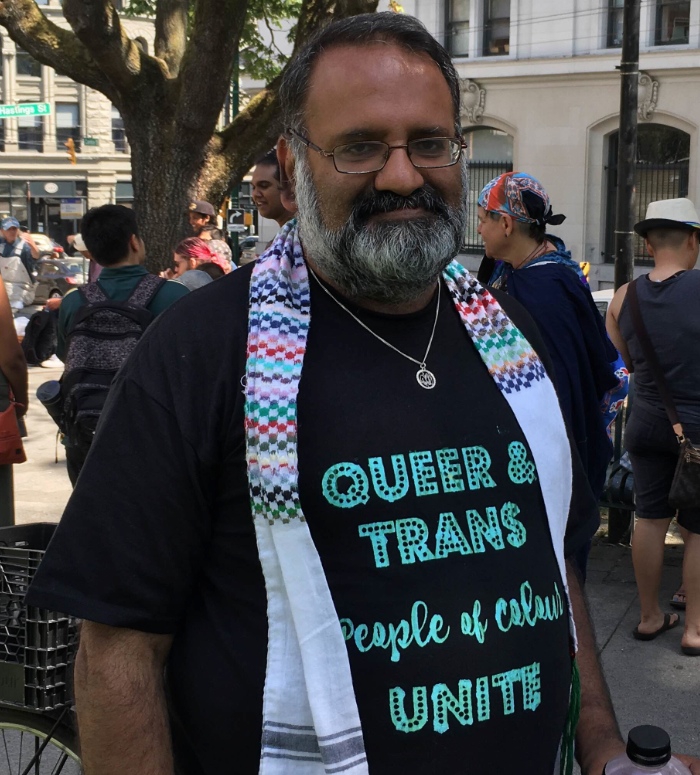
Imtiaz Popat organized the Aug 1 march. (Rosemary Newton/Daily Xtra)
Fatima Jaffer of the local chapter of Trikone, which supports South Asian LGBT people, hopes the event will continue annually, but says today’s march had a specific focus towards the shooting at Pulse nightclub in Orlando in June.
“We’re taking the street and we’re saying this has to be marked in some way,” she says. “For us as queers of colour and two-spirit queers, we’re the ones who are most directly affected because this is the issue that we live with, day in and day out.”
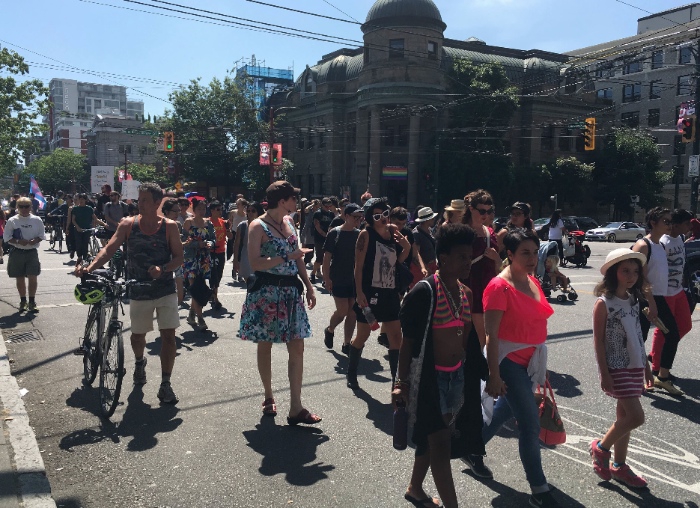
The march makes its way along Main Street towards Crab Park. (Rosemary Newton/Daily Xtra)
The procession made its way through Chinatown then along Main Street to end at Crab Park for a healing circle, in which participants were invited to speak to their experiences. Allies present were invited to act as security and traffic marshals.
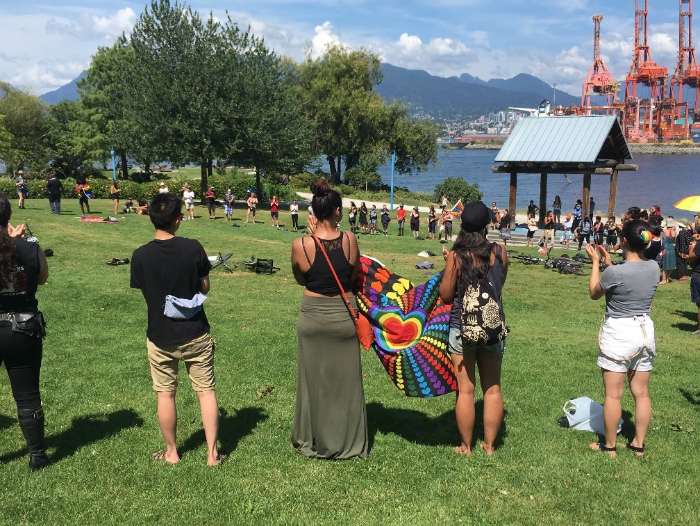
Participants were invited to share their experiences in a healing circle at Crab Park. (Rosemary Newton/Daily Xtra)
“I still support Pride in all of its existence, just for the sheer fact that it does take up space in our city, but at the same time recognizing that it doesn’t speak and hold space for everyone,” says Vanessa Bui, who attended today’s march in support of alternative spaces that bring to light issues that affect people of colour.
“Spaces like this are being created because it’s just reaching a boiling point where, you know what, if you’re not going to be more inclusive for us then we’re going to have to do something ourselves,” she says.
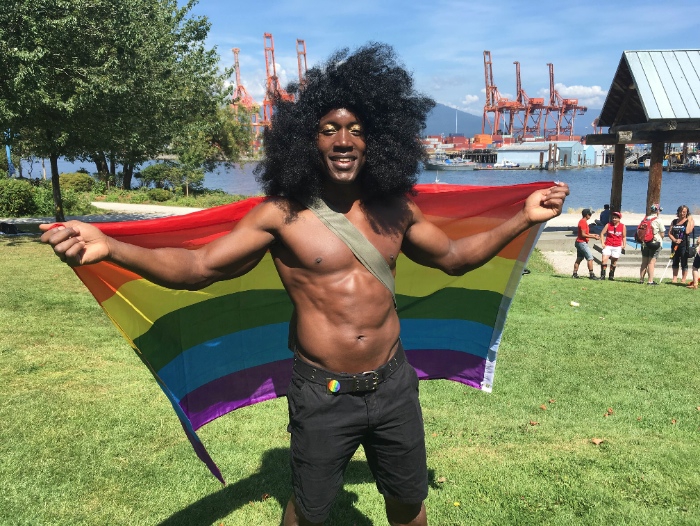
Roger Blenman spoke at the healing circle at Crab Park. (Rosemary Newton/Daily Xtra)
“I think it’s important because it brings attention and focus on some of the issues marginalized groups are feeling,” Roger Blenman told Daily Xtra in an interview after the healing circle. “It also is an opportunity for allies to get involved in a very tangible way, and not sort of just put platitudes on Facebook or say ‘yeah, I care.’ You can show up and show that you care, and walk side by side with people who face challenges everyday.”
Denise Fraser, a Queer FM host, says she was glad to take part in a more grassroots march.
“It’s a different march for marginalized people,” she says. “I’m in solidarity with Black Lives Matter as well, so I’m here to show my support and also be a face for the community.”
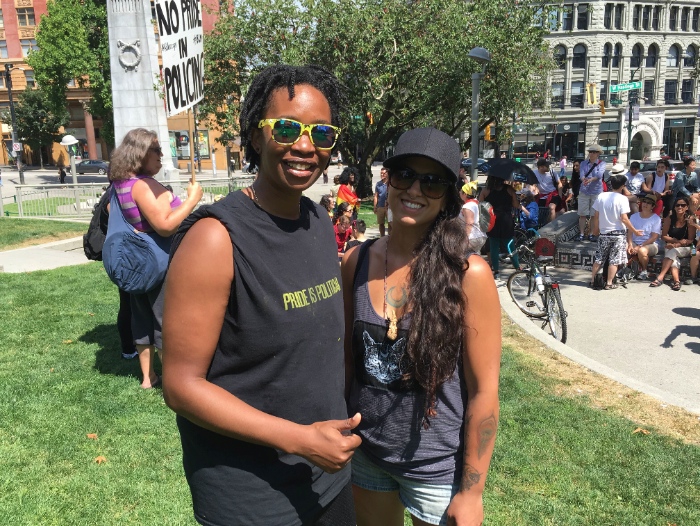
Denise Fraser, left with Veronicka Salixx, welcomed the march. (Rosemary Newton/Daily Xtra)
Attendee Tami Starlight cautioned against what she says, in some cases, has become meaningless banner-waving at Sunday’s Pride parade.
“I think alternatives to the corporate, over-policed, under-enlightened, so-called Pride march in Vancouver is a good thing so we can show some diversity,” she says. “Pride is political, and everything is political, and we need to do a lot more to help those who are marginalized.”
She says the voices of activist-led community groups need to be included — in a meaningful, not tokenistic way — in Pride movements.
“I’m really grateful for Black Lives Matter Vancouver for bringing up the fact that racism and all kinds of oppressions that intersect are totally at play here,” she says.
Related:
Support for Black Lives Matter sprinkled through Vancouver Pride parade
Meet some of the queer members of Black Lives Matter Vancouver
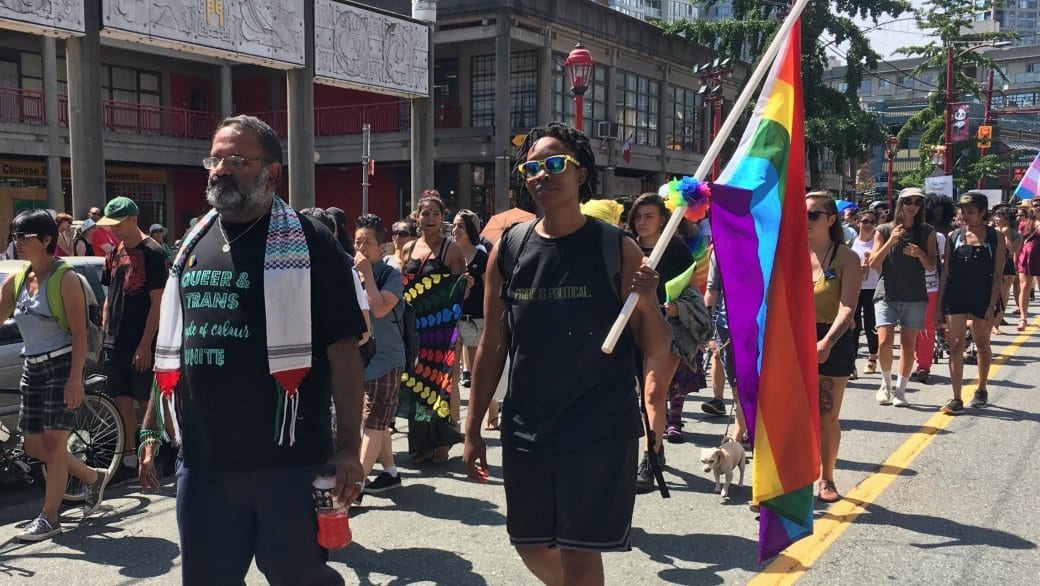
 Why you can trust Xtra
Why you can trust Xtra


